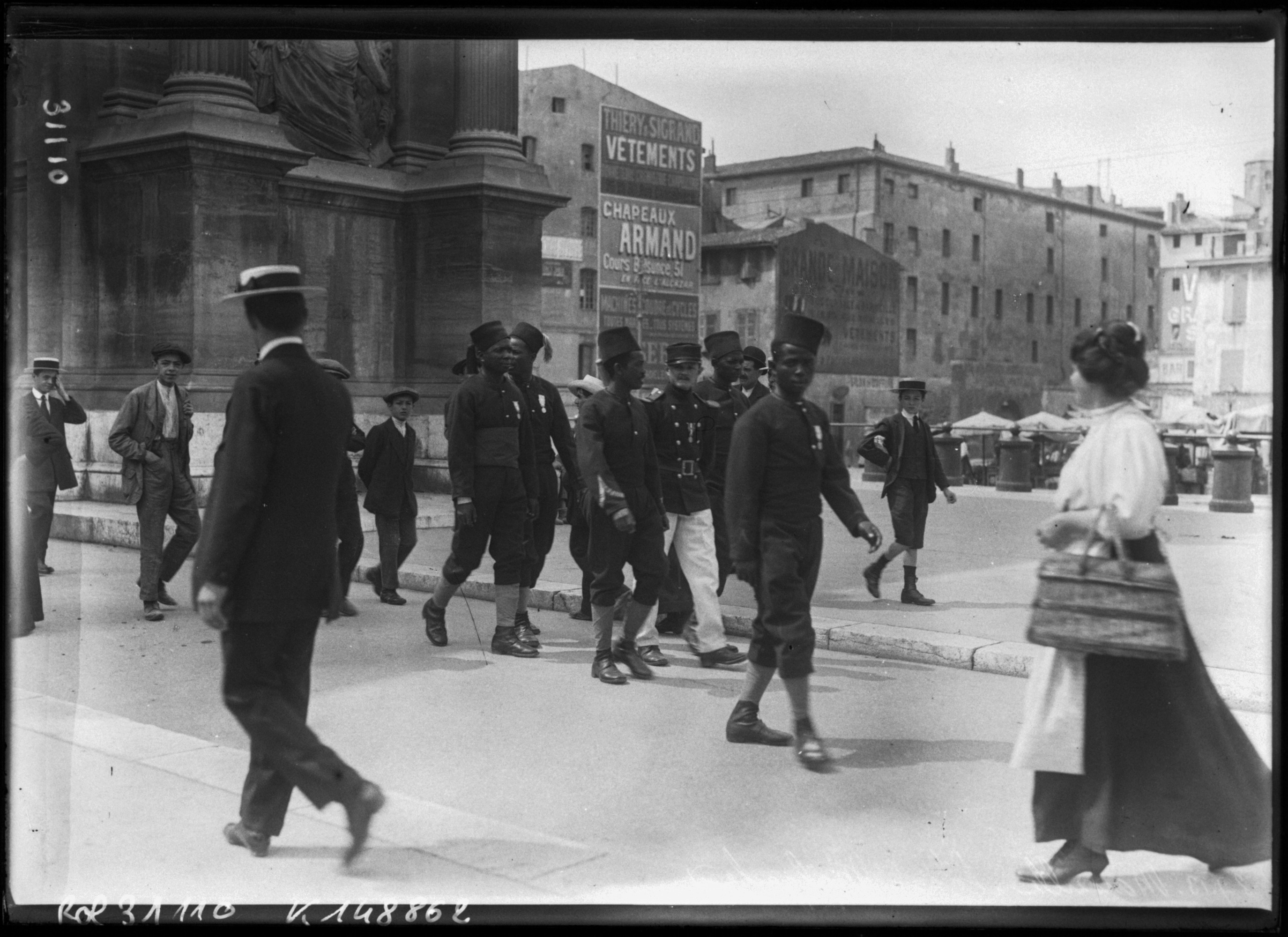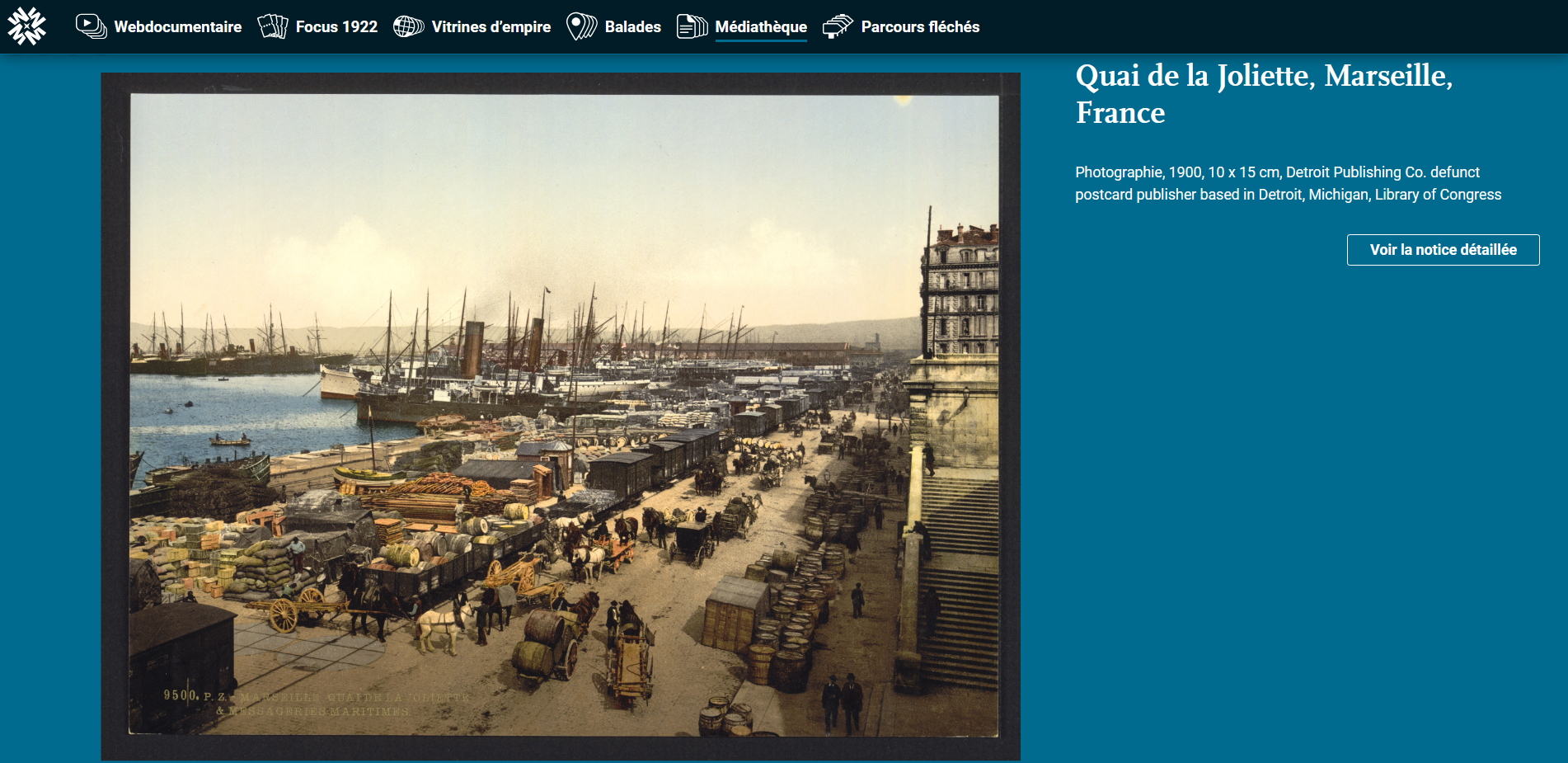aMU delves into the colonial history of Marseille aboard the Mars Imperium portal

The project is based on a worrying academic observation: despite a number of noteworthy works, the imperial history of Marseilles remains fragmented and often cluttered with preconceived ideas. This fragmentation makes it impossible to properly assess the impact of colonial rule on Marseilles society in the nineteenth and twentieth centuries, or to understand current tensions and grievances.
At a time when debates are intensifying over the material traces of the colonial past (statues at Saint-Charles station, museum objects, urban place names), there is an urgent need for a rigorous, comprehensive and accessible historical approach. Mars Imperium is organised around five platforms, each approaching colonial history from a specific angle:
- A webdocumentary of 81, 5-minute videos, organised around nine themes
- Digital walks exploring colonial urban traces in Marseille
- A documentary film on the 1922 Colonial Exhibition
- A digital showcase presenting the Musée Colonial's collections through some 40 objects.
- A media library giving access to archives and research sources
In total, almost 1,500 documents have been compiled on this free portal.

Innovative browsing and thematic pathways
One of the project's major innovations is its cross-platform navigation. An algorithm suggests resources with a thematic, spatial or temporal link to the page being consulted, creating alternative routes through this vast documentary database.
The portal also offers specific thematic paths on emerging subjects such as anti-colonial mobilisations, the decolonisation of the public sphere, colonial sciences, the slave trade and slavery, and gender and racism.
Designed for all audiences, Mars Imperium enables everyone to take ownership of this complex history and understand how the imperial past continues to shape Marseilles and contemporary France.
Latest Highlights:
Why do Spaniards feel lonely? A UAM-led study tells us
University of Salzburg celebrates cultural monument conservation success
Nobel Peace Prize Laureate Leymah Gbowee: knowledge and compassion together can make a difference
